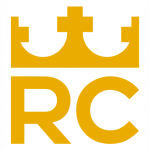

Credits
1.0
This enriched theoretical and practical course (3-credit hours) is designed to fulfill the Entry-to-Practice Competency Profile of the College of Registered Psychotherapist of Ontario (CRPO) for: “Foundations” (1.1-1.5), “Collegial & Interprofessional Relationships” (2.1-2.3), “Therapeutic Process” (4.1-4.7), “Professional Literature and Applied Research” (5.1-5.2), and especially, “Professional Responsibilities” (3.1-3.10). Theological and spiritual reflection on clinical practice in multicultural contexts is encouraged. Lectures, class discussions, ethical decision making on case studies, clinical interviewing, instructional videos, weekly reflection papers, final research paper (AD).
BD/3000 Level Students will be able to:
1) To acquire a basic knowledge of the ethical issues impacting clinical care in private and institutional settings with a focus on one’s primary modality of psychotherapeutic counselling and applicable codes of ethics and professional conduct.
2) To acquire a basic grasp of one recognized model of ethical decision making in clinical work, and to practice using this model in class exercises.
3) To reflect upon oneself, in terms of how one’s own inherent biases and worldview (including things like gender, faith, ethnicity, etc.) impinge upon the one’s ability to work ethically as a psychotherapist.
4) To consider one’s past and present clinical practice and how the theories, practices and guidelines presented in the course may be best used in current contexts, such as private practice and institutional settings.
5) To make links between the major themes of professional theory and praxis from an interdisciplinary standpoint – particularly how religious faith, spirituality and values can be effectively integrated into religious and non-religious evidence-based research and practice.
6) To engage in classroom exercises with one’s peers, designed to concretize these modalities and foster a collaborative professional sensibility for working in multidisciplinary teams.
AD/6000 Level students will be able to:
1) To acquire a high level of knowledge concerning the ethical issues impacting clinical care in counselling with a focus on integrating one or more psychotherapeutic modalities into one’s particular context.
2) To acquire greater facility in using one more ethical decision making models for the purposes of becoming a wise discerner of the more complex ethical dilemmas in varied clinical care contexts.
3) To reflect upon oneself, in terms of how one’s own and inherent biases and worldview (such as faith, gender, and ethnicity, etc.), may impinge upon one’s ability to work ethically as a psychotherapist.
4) To consider, with even greater depth, how prior experience may now be reconsidered in terms of the theories and practices presented in the course, and best used in current contexts, such as private practice and institutional settings.
5) To explore with greater sophistication the links between the major themes of professional theory and praxis from an interdisciplinary standpoint – particularly how religious faith, spirituality and values can be more effectively integrated into religious and non-religious evidence-based research and practice.
6) To engage in classroom exercises with one’s peers, demonstrating leadership in concretizing the modalities, and fostering a collaborative professional sensibility for working in multidisciplinary teams.
A detailed course schedule is available for download.
Week 1
Week 2
Week 3
Week 4
Week 5
Week 6
Week 7
Week 8
Week 9
Week 10
Week 11
Week 12